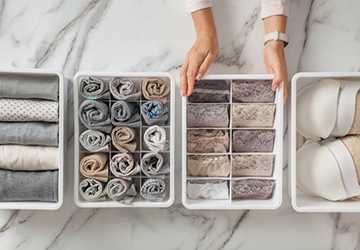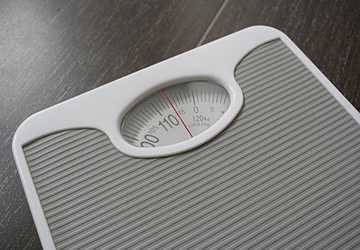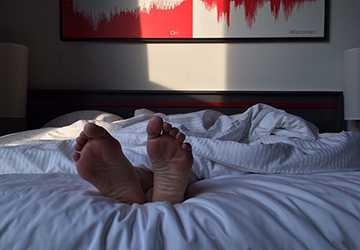Circumstances and circumstances have a significant impact on your life. Research shows that a tidy and organized workforce can help reduce stress levels.
That sounds great, but organizing one's space or thoughts can take time and effort. Many people love the idea of living with less, and many are stressed out by the idea of living with too little. Whether it's your mind or your home, being organized can help with many problems.
An unmanageable environment can leave you with a mess in the morning or a late-night cleanup.
If you need help keeping your life and home tidy, we're here to give you seven essential tips for organizing your home and mind.

3 Common Causes of Confusion
When it comes to purges and their methods, it's essential to clarify the why of purges. What factors lead to confusion in the first place? Many factors create a tidy environment, as listed below.
1. Attachment to objects
Emotional attachment is the most common cause of environmental chaos. Many people form emotional bonds with their objects and possessions and tend to keep them long-term, even after they are no longer in use.
Factors such as divorce or the death of a loved one can cause such problems. People remember good old memories by carrying an item with them.
2. Lazy Cleanup
Lazy cleaning is the number one cause of the mess. When people stop brushing or touching their teeth very infrequently, their environment becomes disorganized.
If you clean up all the clutter regularly, you don't need to tidy up. Humans tend to live in an organized, clean environment to improve physical and mental health.
3. Insufficient disk space
Only some have suitable cabinets and shelves; others need more personal space for shelves or large closets.
Lack of storage space creates confusion and makes maintaining organization even more difficult.
7 Tips to Organize Your Home and Mind
Now that we've taken a closer look at some common causes of confusion let's look at some tips for resolving the problem.
Organizing is a challenging task; most people need help with it. However, the first step is the most difficult. But if you keep a clear mind, you can organize successfully.
To help you organize your room, we've put together seven essential tips to help you manage your home and mind.
1. Set goals
Before you make a decision, you should always plan it because a spontaneous decision will never help you reach your goals. The same goes for decluttering; if you're still in thinking mode, set daily goals to improve your performance.
For example, put a Post-it note on the refrigerator and write down your daily goals, such as cleaning the closet or organizing the fridge. Creating a daily plan will help you develop a disciplined habit of tidying up.
2. Donate one item per day
Let's be honest with ourselves; as much as we support donations, we still overlook them when we remove things from our homes. If you're struggling with a tidy environment, donating or gifting anything in your home will help keep your environment organized.
If you follow this tip for a year, you'll donate 365 items to your house. Isn't that great? Instead of making the painful decision to ditch an entire bag of things, you'll have 365 items without hurting feelings.

3. Before and after photos
You are taking before and after photos can be a very motivating and effective reminder to get into the habit of organizing. If your room or house has been cluttered for a long time, the clutter will become routine in your eyes so that you no longer feel cluttered.
These motivations are strengthened when you observe this improvement and choose to restart your life in an organized and orderly manner. Click a photo of your house before cleaning and then a picture of it after the entire cleaning process.
Improvements and diffs will help you see what you're missing and motivate you to clean regularly.
4. Get professional help
Sometimes people are one step closer to decluttering because they've been living with clutter and are disorganized due to mental or physical illness.
If you want to improve the tidiness of your home but can't do it yourself, don't feel ashamed or embarrassed to seek professional help. Various cleaning aids are available to improve the environment.
5. Make firm decisions
First, poor decision-making can lead to chaos in your life. It helps if you took out so many things years ago and still have them because you don't have the energy to throw them away.
It would help to clarify the scenarios where you might need it again. To declutter your house, make vital decisions to get rid of things you no longer need. Likewise, strong decision-making helps to remove insignificant people from your life.
6. Buy storage accessories
Few people have large houses or substantial living spaces, while most tend to have tiny living areas, resulting in a need for more storage space.
Low disk space leads to confusion; everything needs a specific place; if you have 50 books, and even 20 need more space, what about the remaining 30?
To avoid storage problems, shop for accessories that help keep your home organized while taking up the least space.
For example, to avoid unnecessary clutter, buy bookshelves or jewelry boxes.
7. Keep a journal
A journal is beneficial when you need to organize your space and thoughts. If you don't want to clean or organize, write it in your diary so you remember tomorrow.
Having a journal is not only helpful for dealing with a messy home but also essential to healing a dirty mind; writing down your feelings and emotions on paper helps you relax better and get rid of messy emotions.
Diploma
All the tips listed will be helpful when trying to organize your lifestyle. Tidying up is challenging to build, but if you do it right, the momentum will never let you tidy up again.
No big deal; you can get organized quickly by developing a few habits.









